US expert community is trying to identify ways out of the Afghan impasse
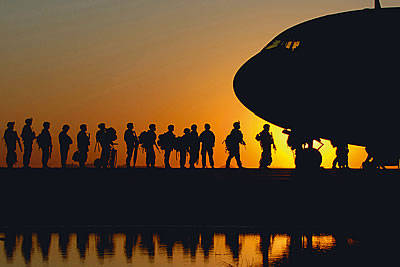 Published in the fall of last year, the report of the research team on Afghanistan entitled “New way forward: rethinking the US strategy in Afghanistan” (A New Way Forward: Rethinking US Strategy in Afghanistan) attempted to analyze the current strategy of the administration of President Barack Obama in Afghanistan, to identify its shortcomings and make recommendations on possible alternatives to the Afghan policy of the United States of America.
Published in the fall of last year, the report of the research team on Afghanistan entitled “New way forward: rethinking the US strategy in Afghanistan” (A New Way Forward: Rethinking US Strategy in Afghanistan) attempted to analyze the current strategy of the administration of President Barack Obama in Afghanistan, to identify its shortcomings and make recommendations on possible alternatives to the Afghan policy of the United States of America.The Afghanistan Study Group brings together politicians, former employees of the US government, academics, business representatives, public figures who are concerned about the course of the Obama administration in Afghanistan and, to a lesser extent, in Pakistan. It consists of scientists from various prestigious American universities, research centers, the National University of Defense, military academies, representatives of various foundations (mainly the New America Foundation), civilian and military specialists in the region, writers and journalists.
The group met several times in 2009 and 2010 to discuss the overall strategy of the current administration, its stated goals and to formulate alternative US policy options. The project aims to become a serious alternative attempt to counteract threats to the national interests of the United States from Al-Qaeda and similar organizations, taking into account economic realities and other challenges to the country's security. According to group members, there is a big risk that the current strategy of the Obama administration to stabilize Afghanistan will fail. Experts also believe that the US national interests will only be strengthened if alternatives to the existing strategy are developed and discussed in advance.
The war in Afghanistan costs American taxpayers too much
MYTHS AND REALITY
During the discussion, 11 myths about the situation in Afghanistan and prospects for overcoming the situation there were examined and debunked.
Myth 1. The United States can remain in Afghanistan until the final victory.
In reality, this is impossible, first of all, for economic reasons, since it increases the budget deficit and the public debt of the United States. The war is draining American military power and distracting political leadership from more pressing tasks.
Myth 2. The Obama administration and the military have a really feasible strategy and clear deadlines for the end of the war.
The existing strategy does not work, and the administration has not defined the ultimate goal that it intends to achieve, or the situation that will allow for the withdrawal of troops. The US government emphasizes that the withdrawal of army contingents in the summer of 2011 will depend on the conditions that will develop by that time. The existing strategy and the stated schedule are not synchronized, the goals need to be brought into line with the existing reality in the country so that the withdrawal of the troops within the scheduled timeframe is completed in a timely and efficient manner.
Myth 3. The build-up of troops in Iraq proves that counterinsurgency strategy can work; all that is needed is to continue the same course.
The build-up of military force in Iraq achieved only partial success, which was no less based on the payment program for almost 100 to thousands of Sunnis who fought against the forces of the allied coalition. In Iraq, there was a decrease in the level of violence, but the build-up of military force did not lead to political reconciliation. The escalation of military force in Afghanistan also has not yielded significant results so far, and there is no reason to think that something will change in the future. The effectiveness of building up military power in Iraq depended largely on the fact that Sunni Iraqis for the most part departed from terror. Ethnic and religious differences in Afghanistan are much more complex, and tribal formations are much more fragmented than in Iraq, therefore, a similar turn from the Afghan rebels is only possible in a distant future. Political reconciliation in Afghanistan can only go consistently from one community to another.
Myth 4. The Taliban are a group of religious fanatics who cannot be tamed by negotiation.
All societies have irreconcilable extremists, but they usually represent a small minority. Many groups in the Taliban have already shown their willingness to negotiate. They can be lured to their side, transferring a part of political power, more autonomy and marking the prospects for economic benefits. The Taliban is not a single movement, but a label that is glued to each armed group or militant who are not necessarily fascinated by the fundamentalist ideology of well-known Taliban leaders. The organization has tribal leaders, militia leaders and field commanders, many of whom (including the Haqqani and Hekmatyar organizations) are a living legacy of the rebel struggle against the Soviet forces.
Myth 5. There is no significant difference between the Taliban and Al Qaeda. They are part of a growing alliance of religious extremists who hate America and need to be defeated at all costs.
Al-Qaida and the Taliban are not the same thing, they have many differences and controversial issues. The Taliban is a coalition of military-political and tribal organizations that seek power in Afghanistan. Al-Qaida is an international terrorist network that seeks to end Western influence in the Middle East and overthrow the existing Arab governments. Only al-Qaida directly threatens the United States.
Myth 6. If the US leaves Afghanistan, the Taliban will seize power, Al-Qaeda will again restore its position in the country, which threatens with new deadly attacks in America.
In fact, the Taliban are unpopular in much of Afghanistan, and it is unlikely that they can seize power in the country. They may gain the upper hand in some areas, but al-Qaeda will not be able to restore its bases there, because the US is now able to detect and destroy them with the help of aviation and special forces. Moreover, the American massive military presence may lead to the fact that the terrorist threat to the US territory itself will increase. This is evidenced by Faisal Shahzad's failed attempt to detonate a bomb in central New York. He was an American citizen, and other homegrown terrorists were inspired by the same ideas of jihad.
To win the war with the armed people is virtually impossible
Myth 7. A massive American military presence in Afghanistan is the only guarantee for the observance of the rights of Afghan women.
In reality, the worst is for Afghan women - if Afghanistan remains paralyzed as a result of the civil war, which deprives them of the prospects for social development. Protecting women's rights is central to achieving progress in Afghanistan, and the international community must support this progress. Although the research group calls for a radical reduction of the military presence, it is nevertheless proposed to maintain international peacekeeping forces sufficient to ensure a number of key development programs, including the protection of women's rights.
Myth 8. The withdrawal of troops from Afghanistan will be seen as a great victory for Al-Qaida and will increase its popularity and prestige. If the US loses ground in Afghanistan, the terrorists will come to the territory of America.
It is the American military presence that actively promotes the growth of the Taliban’s ranks and inspires scattered extremist groups to unite against a common enemy. Afghan Mujahideen did not go "home to the Soviets" after the withdrawal of Soviet troops. The same will happen if the United States limits its military presence and eventually withdraws troops. The cessation of hostilities in Afghanistan will undermine al-Qaida’s claims that the United States is allegedly trying to establish its supremacy in the Islamic world. Reducing the US military presence in Muslim countries will make America safer, and will not inspire terrorists to organize terrorist attacks against Americans both in the US and abroad.
Myth 9. The winding down of US military operations in Afghanistan will endanger stability in Pakistan and, accordingly, control over its nuclear arsenal.
A long war without any prospect of victory is much more likely to destabilize the situation in Pakistan than the rapid winding down of US military operations. There are many other opportunities for the United States to ensure the safety of the Pakistani nuclear arsenal, which are much less costly and more effective than maintaining a large military contingent in Afghanistan.
The danger of extremists coming to power in Pakistan is very insignificant. Islamic extremism in Pakistan is concentrated in the tribal zones on its northwestern border and is mainly limited to the Pashtun minority, which is about 15% of the population. The Pakistani army consists predominantly of the Punjabis, who make up roughly 44% of the population and retain loyalty to the central government. Thus, currently in Pakistan, the preservation of stability in which is in the strategic interests of the United States, there are no serious threats.
Myth 10. The winding down of military operations in Afghanistan will cause a crisis of confidence among the US allies. Some may even try to build relationships with America’s opponents.
In reality, the allied mission in Afghanistan clearly does not meet with public support in almost all US partner countries. America will only strengthen its allies' credibility if it comes up with a realistic and pragmatic strategy for winding down military operations and eventually ending the military mission in Afghanistan. Already, some NATO countries intend to withdraw their troops, so if the United States also sets itself the goal of a final withdrawal of troops, this will most likely ensure the strength of NATO than the setting of some unrealistic goals. The United States will earn the trust of the Allies if their decisions are deemed reasonable, even if they mean a change of guidelines.
Myth 11. If the Obama administration turns down the mission in Afghanistan, the Republicans will immediately declare its “softness”, and the Democratic Party will have to pay a large political price in the 2012 election.
The US strategy in Afghanistan should be based on the national interests of the United States, and not on the rivalry of parties. Moreover, war is increasingly unpopular among Americans. Voters will support policies that will reduce costs, combat terrorism, and return soldiers to their homes.
National Afghan Army and Security Forces Still Unreliable
ANALYSIS OF US STRATEGY IN AFGHANISTAN
The United States has been fighting in Afghanistan already for 9 years longer than in Vietnam. This war will soon exceed the duration of the Soviet Union's Afghan campaign. The US military budget grew from $ 370 billion in 2000 to $ 725 billion in 2011. The war that the US is currently waging in the Middle East is second in terms of costs in the US stories after World War II and is more expensive than the Vietnam and Korean wars combined.
According to the research service of the US Congress, given the buildup of the US military presence in Afghanistan, this war will cost about $ 100 billion a year - an amount that far exceeds the annual GNP of Afghanistan ($ 14 billion), not to mention the fact that it is more total annual costs of a new US health care program. The war led to great casualties: thousands of Americans and their allies were killed or seriously injured.
There is no doubt that American interests in Afghanistan should not require such sacrifices. President Obama justifies the increased military presence by the need to destroy al-Qaida. He has repeatedly stated that the United States is fighting in Afghanistan to prevent this country from becoming a refuge for al-Qaida, from where it could strike and kill Americans. After coming to power, Obama has already sent 50 additional thousands of troops to carry out an ambitious counterinsurgency campaign aimed at the final destruction of the Taliban in US-controlled territories, gaining the trust of the local population, training combat-ready Afghan security forces and helping build a competent, legitimate and effective central government.
But the presence of al-Qaida in Afghanistan is already limited to just a few hundred of its strong supporters remaining throughout the country and in the north-western provinces of Pakistan. According to Michael Leiter, director of the National Counter-Terrorism Center, there are currently only 50-100 Al-Qaida members in Afghanistan, and about another 300 in Pakistan. Thus, for the sake of achieving the declared goal of destroying Al-Qaida, the United States spends about $ 250 million per year to fight with every militant of this organization!
Instead of fighting terrorism, the American war in Afghanistan became an ambitious and futile attempt to "build a state." The US is bogged down in a civil war and is struggling to establish an effective central government in a country that has been split for a long time and did not have a single power center.
It doesn't matter how desirable in theory it would be to achieve this goal. But it does not seem to be important to US security, and the US military is obviously not suitable for achieving it. Ensuring the unity of Afghanistan would have required the sacrifice of the lives of many more Americans and an additional hundred billion dollars over the years.
More than 91 thousands of secret documents on the war in Afghanistan, distributed by the Wikileaks site, clearly show that any progress by the United States and its allies in this conflict is undermined by the facts of civilian deaths from the strikes of the American military and their allies, and more recognized. Pakistani intelligence continues to provide material and financial support to the Afghan Taliban. It is also quite clear that Karzai’s supporters and appointees in the field are often more corrupt and violent than the Taliban.
The prospects for success are very vague. Henry Kissinger, in the article “America needs an Afghan strategy, not an alibi,” published in the Washington Post newspaper 24 June 2010, warned that “Afghanistan could never be pacified by foreign military intervention.” The offensive of the American forces in Marjah in the spring of last year did not produce results, and the supposedly “decisive” summer offensive in Kandahar was postponed and is not expected of much. Coalition losses reached their peak in July 2010, and several NATO allies announced plans to withdraw troops.
By the beginning of 2011, the United States had lost the killed 1463 soldiers, the wounded - 10140.
The conflict in Afghanistan is usually seen as a struggle between the Karzai government and the rebel Taliban movement, which, in alliance with international terrorists, seeks to overthrow this government. In fact, the conflict is a civil war, the struggle for the distribution of power and is partly ethnic in nature - Pashtuns who dominate in the south, fight with other ethnic groups such as the Tajiks and Uzbeks who predominate in the north of the country. Conflict between town and country, in particular among Pashtuns, as well as religious differences, are imprinted on the conflict.
The Afghan conflict is also influenced by neighboring countries that pursue their own interests - India, Pakistan, Iran, Saudi Arabia and others. US military intervention is seen as a foreign military occupation, and it is resisted.
The resolution of the conflict in Afghanistan primarily depends on the resolution of the issue of the distribution of power between different groups, as well as between the central government and the provinces, with appropriate decentralization of powers. Resolving these contradictions through negotiation may rather help limit the influence of extremists.
The research team believes the war in Afghanistan has reached a critical point. The current US strategy has a limited impact on civil war, with American losses and financial costs increasing. We need a completely different approach, taking into account the legitimate interests of the United States in Central Asia and aimed at their promotion. This approach does not mean recognition of the defeat of the United States in Afghanistan, but recognizes the numerous limitations of a military solution to the problem in a region where American interests require political stability. The strategy recommended by the research group involves the use of US foreign policy resources and the support of the international community to reconcile the warring parties, create conditions for economic development and apply diplomatic efforts to stabilize the region.
CONCLUSIONS
1. The US strategy in Afghanistan should be based on a clear understanding of American interests and a realistic understanding of what foreign intervention can and cannot provide. The United States has only two main interests in the region of Afghanistan and Pakistan: not to allow Afghanistan to become a haven for Al Qaeda and other extremist terrorists who could organize successful attacks against the United States from there; ensure that Pakistan’s nuclear arsenal does not fall into hostile hands. Fortunately, this threat is not serious enough, since the danger of a radical coup in Pakistan is small.
2. Defending American interests does not require a US military victory over the Taliban. Coming to power of the Taliban is unlikely, even if the United States limits its military presence. The Taliban are spread in rural areas of Afghanistan with a predominantly Pashtun population and have been somewhat successful due to the deprivation of rural Pashtuns of civil rights. The Taliban's seizure of power in the 1990s was due to an unusual coincidence of circumstances, which is not present at the moment, and it is unlikely that it will be able to happen again. Non-Pashtun Afghans remember the years of Taliban rule and will resist any attempts at their new rise to power. Studies show that there is no massive support from the Taliban in Afghanistan.
3. Today, there is no significant Al-Qaida presence in Afghanistan, and the risk of a new asylum for terrorists with a more "friendly" Taliban government is over-estimated. If al-Qaida decides to return to Afghanistan, the United States will have enough strength in the region to find and destroy the terrorists. This can be achieved through the training of local security forces, the use of air forces and the deployment of troops in strategic cities, but without involving them in expensive and counterproductive operations in the south of the country. In addition, even if the Taliban manage to take control of some part of the territory of Afghanistan, it most likely will not allow Al-Qaeda to resume its presence there because of the risk of being subjected to new strikes by the United States. Bin Laden and his associates are also likely to prefer to stay in Pakistan, which is a safer base for their activities than an isolated Afghanistan deprived of access to the sea.
4. Al-Qaida supporters are now in many countries around the world, and the Taliban’s defeat will have little impact on the global scope of Al-Qaida’s activities, including its ability to strike at the United States itself. Likewise, it will have little effect on its capabilities and a significant reduction in the US military presence in Afghanistan. On the contrary, the presence of 100-thousandth American military contingent on the territory of a Muslim country plays into the hands of the propaganda of extremists who claim that the United States is hostile to Islam. Therefore, special counter-terrorism measures, efforts to change the negative attitude towards the United States in the Islamic world and the general improvement of America’s image, and the fight against international support for violent extremism are more productive.
5. Given the current economic situation, reducing the huge cost of the war in Afghanistan is the most urgent and priority task. The health of the American economy is no less important for the power and security of the country than protecting it from enemy, including terrorist attacks.
6. The continuation of the ambitious US military campaign in Afghanistan is likely to work against American interests. Military operations against the Taliban are ineffective, since the rebels do not go to an open clash, but dissolve among the local population or go to neighboring Pakistan. The American massive military presence causes discontent among the local (especially Pashtun) population and contributes to the growth of Taliban troops. Attempts to reduce civilian casualties and other collateral damage from military operations were not effective enough, and forced many Afghans to take on weapon. The US military presence also contributes to the growth of the dependence of their Afghan partners and contributes to a closer interaction of disparate extremist groups in both Afghanistan and Pakistan. The Taliban themselves represent a fragile coalition of Pashtuns, many of whom are concerned about local living conditions, and do not feel at all a deep commitment to the idea of world jihad. Al Qaeda, on the other hand, is a global network of radical Islamists seeking to overthrow governments throughout the Middle East. The Pakistani Taliban unites various Islamist groups opposing the official authorities. But there are differences. For example, at the head of the Haqqani network in Waziristan is a local field commander who strongly opposes foreign intervention, but from time to time cooperates with the Pakistani interdepartmental intelligence service.
Mentality of Americans and Afghans divide an almost insurmountable abyss
7. As the experience of the past shows, attempts to centralize power in Afghanistan provoked the same local resistance as now. And, apparently, this new attempt will end in failure. Successful counter-guerrilla actions require a reliable local partner, which the Karzai government is not. President Karzai had 6 years to create a legitimate and minimally effective government, but he clearly did not succeed. Karzai is unable or unwilling to fight corruption and the autocracy of warlords, on which his government still relies. The Afghan army and police remain unreliable. At the same time, the Government of Afghanistan cannot afford the cost of building a large security force.
8. Although the United States must support democratic rule, human rights, and economic development, their ability to form a progressive society in other countries is clearly limited. Afghanistan remains one of the poorest countries in the world and is not of great strategic value to the United States. This fact can not be changed by recent reports on significant mineral reserves there, especially since their development requires serious investments. In addition, Afghan society is divided into several distinct ethnic groups that have been in conflict with each other over a long period of time, there are no stable democratic traditions in the country, and distrust of foreign intervention has deeply rooted. Therefore, the costs of attempts to create a democratic society in Afghanistan should be correlated with other major US tasks, such as the need to confront international terrorism, reducing the budget deficit of $ 1,4 trillion.
Solving the problem of returning Afghanistan to the fold of civilization and democracy can be achieved only within the framework of a special international group with which the United States could share the burden of costs.
The final conclusion is clear: the vital interests of the United States in Afghanistan are limited and cannot be ensured by military means. On the contrary, waging a long counterinsurgency war only contributes to the growth of resistance of the Taliban, the spread of the conflict to Pakistan, the unification of radical groups, even those who are at war with each other. The continuation of the war will threaten the health of the American economy and will not allow to fully address other pressing issues, including international ones, such as Iran’s nuclear program.
RECOMMENDATIONS FOR SOLVING THE FIVE STRATEGIC OBJECTIVES
According to the research team, instead of continuing military operations in Afghanistan, the United States should try to solve five main strategic tasks.
1. Afghanistan will not receive lasting peace without broad support from the Afghans themselves. Therefore, it is necessary to focus on the division of power and the inclusion of new political forces in the process. The United States must firmly manage the peace process aimed at decentralizing power in Afghanistan and promote power sharing among all major parties.
According to the current Afghan constitution, the president has unlimited authority in appointing provincial governors and hundreds of other officials. According to former British Foreign Secretary David Miliband, in many regions of the country there is almost no power, half of the governors do not have an office, less than a quarter have electricity, and some receive 6 dollars a month for expenses.
An important stage, indicating the beginning of reforms, would be the provision of the Afghan parliament with the authority to approve appointments to key posts, the introduction of elections to district councils, the decentralization of authority to distribute the budget, the inclusion of elected representatives of the provinces to the national level council, which determines the share of budget funds. The ethnic base of the Afghan army should be expanded. Generally speaking, power in Afghanistan must rely more on local, traditional and community structures.
Unlike President Karzai’s current narrow-minded “peace jirga”, the political sphere should include leaders selected by the main tribal and village leaders in all ethnic and regional subjects of Afghanistan, including rural Pashtuns. This opportunity should be open to those in the Taliban who want to participate in genuine reconciliation. At the same time, it is possible with a high degree of probability to exclude the Taliban as an alternative to the central government in Kabul.
Prerequisites for negotiation such as recognition of the current Afghan constitution should not be demanded.
2. It is necessary to reduce the scale of military operations, and then completely stop them in southern Afghanistan, reduce the American military presence in this country. The research team recommends that President Obama adhere to his promise to begin withdrawing troops in the summer of 2011, and even, if possible, earlier. The size of the American contingent should be reduced to the minimum level necessary to assist in training Afghan security forces, preventing mass atrocities, preventing the spread of Taliban control beyond the Pashtun south and conducting, if necessary, counter-terrorist operations.
The research team recommends reducing the number of US troops to 68 thousand by October 2011 and to 30 thousand by July 2012. By the fall of 2012, it is necessary to examine how such a contingent is consistent with the broad strategic goals of the United States, and finally . This will save the US at least $ 60-80 billion annually and eliminate local dissatisfaction with the American presence and intervention.
3. Focus on al-Qaida and addressing internal security issues. Special and intelligence services should focus on fighting al-Qaida cells in the region. They should be ready to identify and pursue terrorists in the event of attempts to regroup or create new training bases. The funds freed up as a result of the reduction of the military presence should be aimed at improving the internal security of the United States and monitoring the spread of nuclear weapons in the world. According to the research group, more effort should be made to exploit the contradictions between the various radical groups in the region, which will be much easier as the American military presence diminishes.
Continuing Operation Enduring Freedom in Afghanistan Is a Way to a Dead End
4. Promote economic development. Poor countries are a breeding ground for terrorism, drug trafficking, human trafficking and other illegal activities, so actions to restore peace should be combined with the efforts of the international community to develop the economy of Afghanistan.
Afghanistan is one of the poorest countries in the world, and hopeless poverty has made some of its people susceptible to the slogans of the Taliban. The following events can be potentially useful:
- granting Afghanistan the most favored nation status in trade with the United States, European countries and Japan;
- investment by national and international companies in local infrastructure; the provision of subsidies, loans and technical assistance to local agricultural producers (other than poppy growers), construction companies and artisans;
- creation of “special reconstruction zones” for foreign and national companies for the production of export products. Such zones could offer investors, at least at the first stage, facilitated taxation;
- assistance to Afghan women through micro-sponsorship and education programs, as well as by providing part of American assistance, depending on the protection of basic human rights, especially women's rights;
- Consider buying up the poppy crop in order to immediately give the Afghan peasants immediate economic benefits, reduce the income of the Taliban and reduce the flow of drugs to the West.
As far as possible, external assistance should be provided through a decentralized Afghan government. Such decentralization will give the government more powers, give it legitimacy, increase transparency and reduce corruption. Decentralization will provide cash assistance directly to Afghans, not to consultants, non-governmental and other international organizations.
5. Despite significant differences, neighboring countries such as India, Pakistan, China, Iran have a common interest in preventing the domination of any one force in Afghanistan, as well as in that it ceases to be a source of instability for others.
The conflict in Afghanistan reflects the long-standing controversies between the various ethnic and tribal groups in the country, but it is also intensified by other states that are seeking to promote their own interests.
Therefore, the research team recommends that a substantial reduction in the military role of the United States be accompanied by vigorous diplomatic efforts directed by the United Nations and supported by the United States and its allies. The main goal is to ensure the neutrality of Afghanistan and regional stability. It requires agreements that recognize and support a more adequate and decentralized Afghan government. The US needs to use its influence to reduce friction between various regional forces, especially between India and Pakistan, so that they do not view Afghanistan as an arena of rivalry, and also not see their long-term strategic allies in the Taliban or any other non-governmental grouping.
The United States must also rely more on allies and partners who have more opportunities to influence Afghans. Non-Arab Islamic states, such as Indonesia and Turkey (the latter is a member of NATO and its military contingent is present in Afghanistan), could play a significant “mentoring” role in education, political reform and human rights. These states could help Afghanistan adapt to international standards without compromising its traditions.
The implementation of these five tasks should be based on a clear understanding of the capabilities of the United States, the cost-benefit ratio. The research team encourages American politicians to really understand what can be achieved and what cannot. In particular, it is impossible to destroy extremist groups in the region, but the danger they pose can be significantly reduced. America’s power is not to dictate its political future to Afghanistan, but it can help push Afghan leaders to political agreements that combine the traditions of the past and the minimum priorities of the United States.
In conclusion, the research team points out that Afghanistan will not become a stable, prosperous country in a short period, but international support may have a positive impact on the lives of its citizens.
The main conclusion for the United States is that the military force in Afghanistan does not work, and an expensive military campaign threatens the vital interests of the United States. According to the research team, the United States should set itself more modest goals, which, on the one hand, meet the true American interests, and on the other, are more achievable.
It is quite characteristic that the research group completely ignores Russia, not only as a possible participant in the settlement process in Afghanistan, but also as a country directly tied to solving many problems related to Afghanistan. This leads to certain reflections.
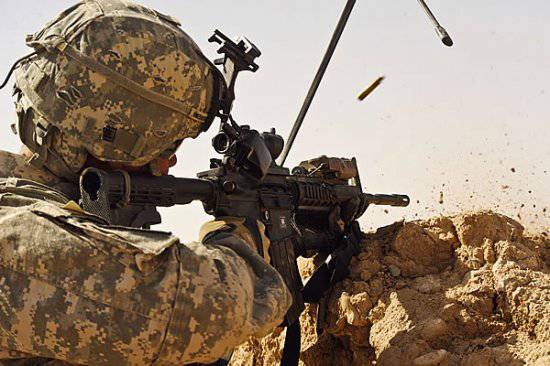
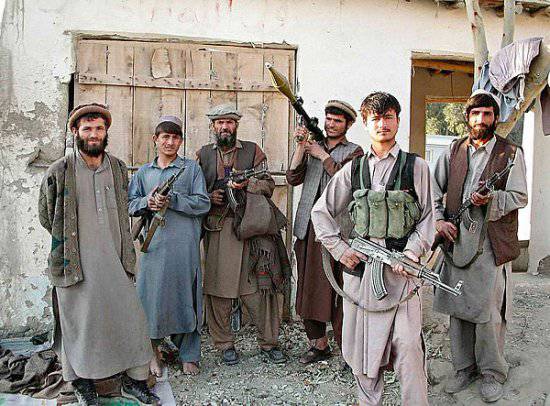
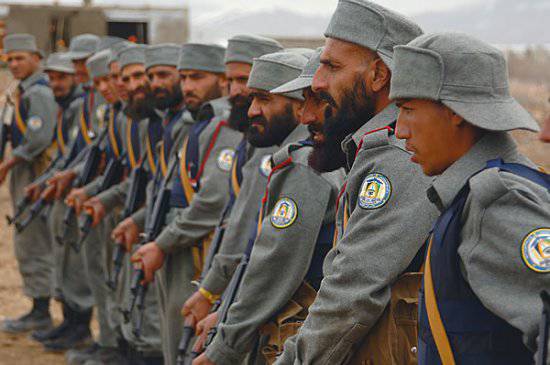

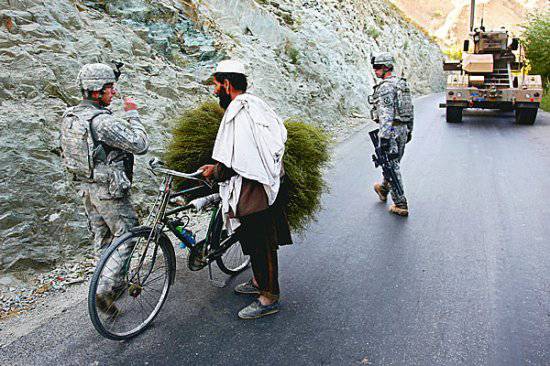
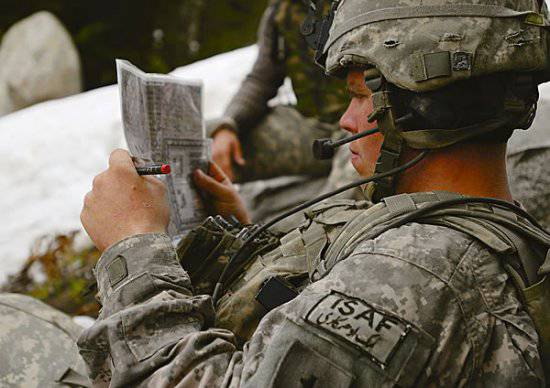
Information